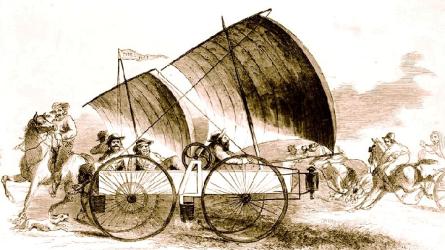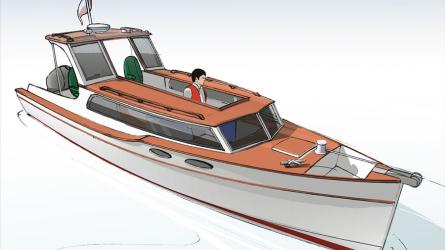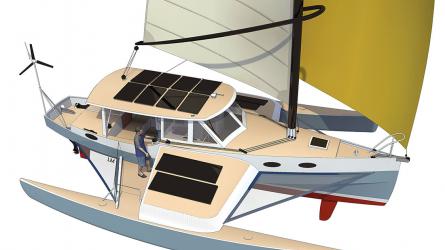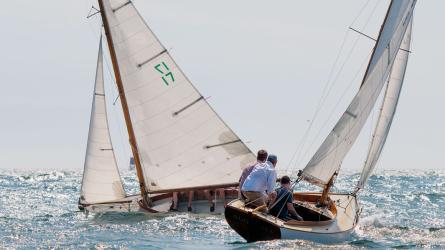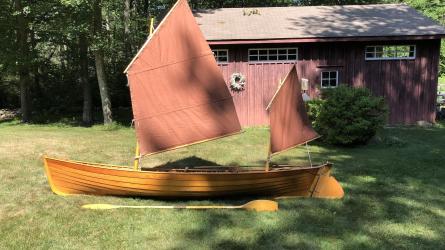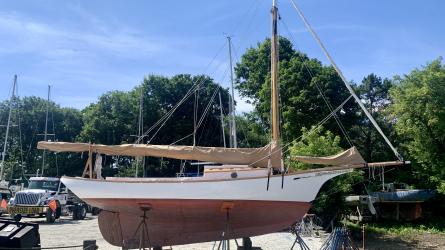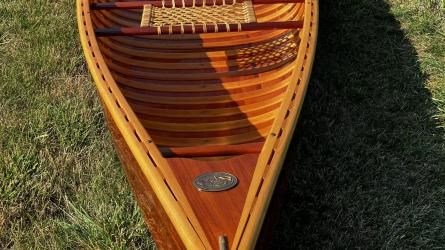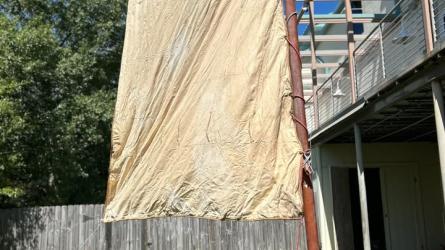July / August 2023
Puget Sound Rumrunners

PACIFIC MOTOR BOAT (BOTH)
Top photo above—The career of the rumrunner THREE DEUCES, designed by Leigh H. Coolidge in 1923, was cut short in 1925 when federal agents seized the boat a day after she unloaded a cargo of illegal alcohol south of Seattle, Washington. The government repurposed her as a “rum chaser”; in this photograph she flies her Coast Guard ensign at the stern. Second photo above—Coolidge’s 592M, 56’ × 9’3”, was designed to leave little wake at high speeds, was painted dark colors, and had her exhaust released underwater to evade detection.
A typical Thanksgiving Day on Puget Sound is windy, rainy, and chilly. But in 1925, on the eve of the feast day, a clear night allowed the full moon to light up the shore at Woodmont Beach, which is roughly 12 miles south of Seattle, Washington. Federal agents, acting on a tip, had set up a stakeout, and they were not misled: soon the sound of unmuffled twin marine engines—straight eight-cylinder 300-hp Sterling Dolphins—broke the silence. The infamous rumrunner THREE DEUCES approached, with her running lights extinguished. Two figures appeared on the wharf, and after they went aboard, the boat sped away to the south. The agents settled in to await her return.
The official paperwork for THREE DEUCES was in the name of a Swedish immigrant, Ed Engdahl, but in reality she was owned by Roy Olmstead, who has been called the “king of Puget Sound rumrunners.” Rumrunning was a profession that thrived during the widely flouted bans on selling or consuming alcoholic beverages during Prohibition. As early as 1914, Washington State had a “dry law” of its own after voters passed an initiative to ban alcohol sales, but the law was superseded by the strict terms of the Volstead Act of 1920, which put into effect the 18th Amendment’s 1919 outright ban not only on sales but also consumption. Broadly viewed as an utter failure, Prohibition came to an abrupt halt in 1933, when the states ratified the 21st Amendment repealing the 18th.
During the years of Prohibition, a lucrative trade in smuggled, illegal liquor was thriving on every U.S. coastline, and Puget Sound was no exception. Olmstead had the biggest operation of them all, relying on fast boats to outrun law enforcement and a network of suppliers and distributors. His rumrunning had been public knowledge since 1920, when he and others were caught offloading a cargo of alcohol north of Edmonds. After that incident, Olmstead, who had been a rising star as a young lieutenant in the Seattle Police Department, was fired from his job on the police force and ordered to pay a fine. Rather than being deterred, he turned to the expansion of his business, making it a vast enterprise.
To read the rest of this article:
Click the button below to log into your Digital Issue Access account.
No digital access? Subscribe or upgrade to a WoodenBoat Digital Subscription and finish reading this article as well as every article we have published for the past 50-years.
ACCESS TO EXPERIENCE
Subscribe Today
1 YEAR SUBSCRIPTION (6 ISSUES)
PLUS ACCESS TO MORE THAN 300 DIGITAL BACK ISSUES
DIGITAL $29.00
PRINT+DIGITAL $42.95
Subscribe
To read articles from previous issues, you can purchase the issue at The WoodenBoat Store link below.
 Purchase this issue from
Purchase this issue from




